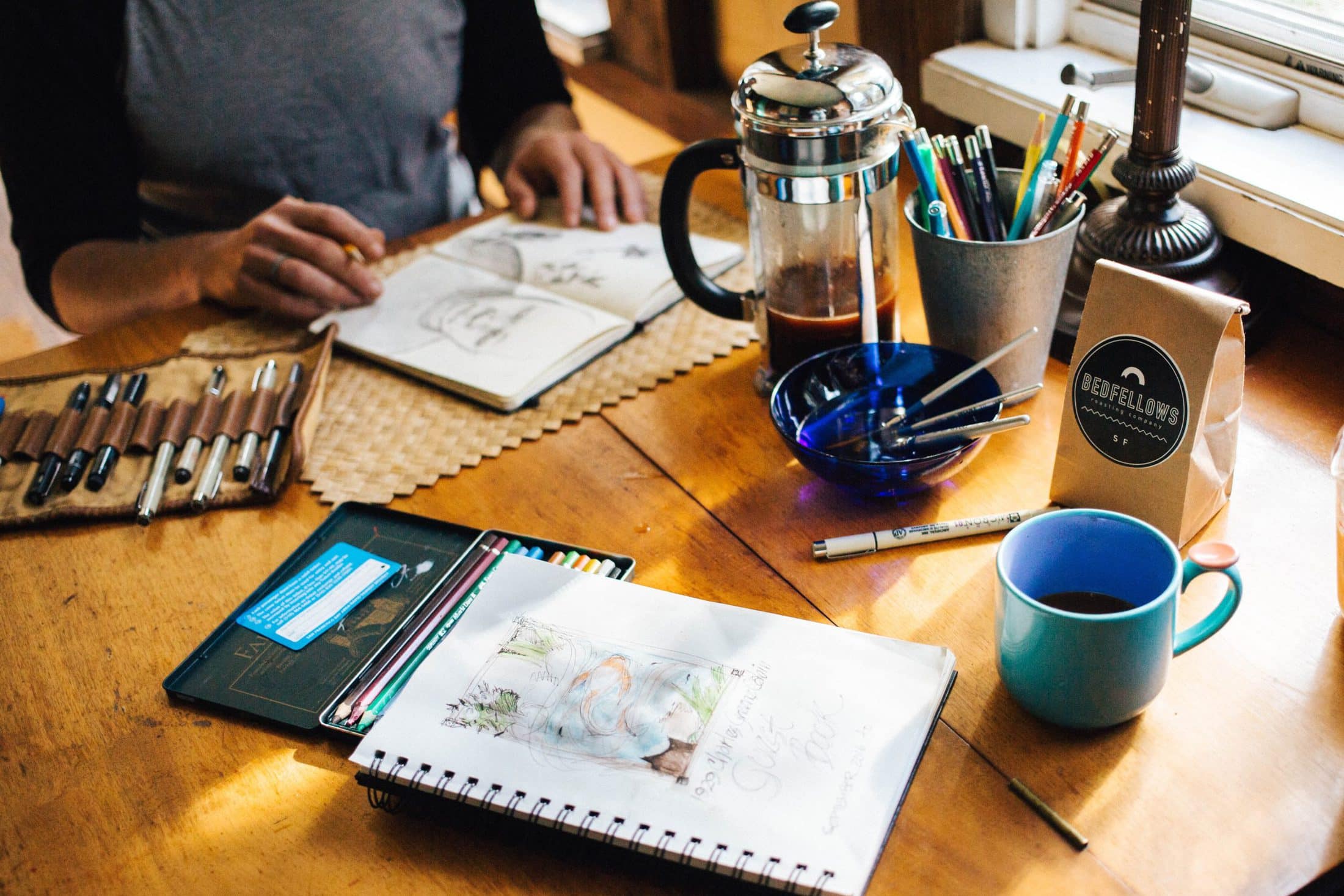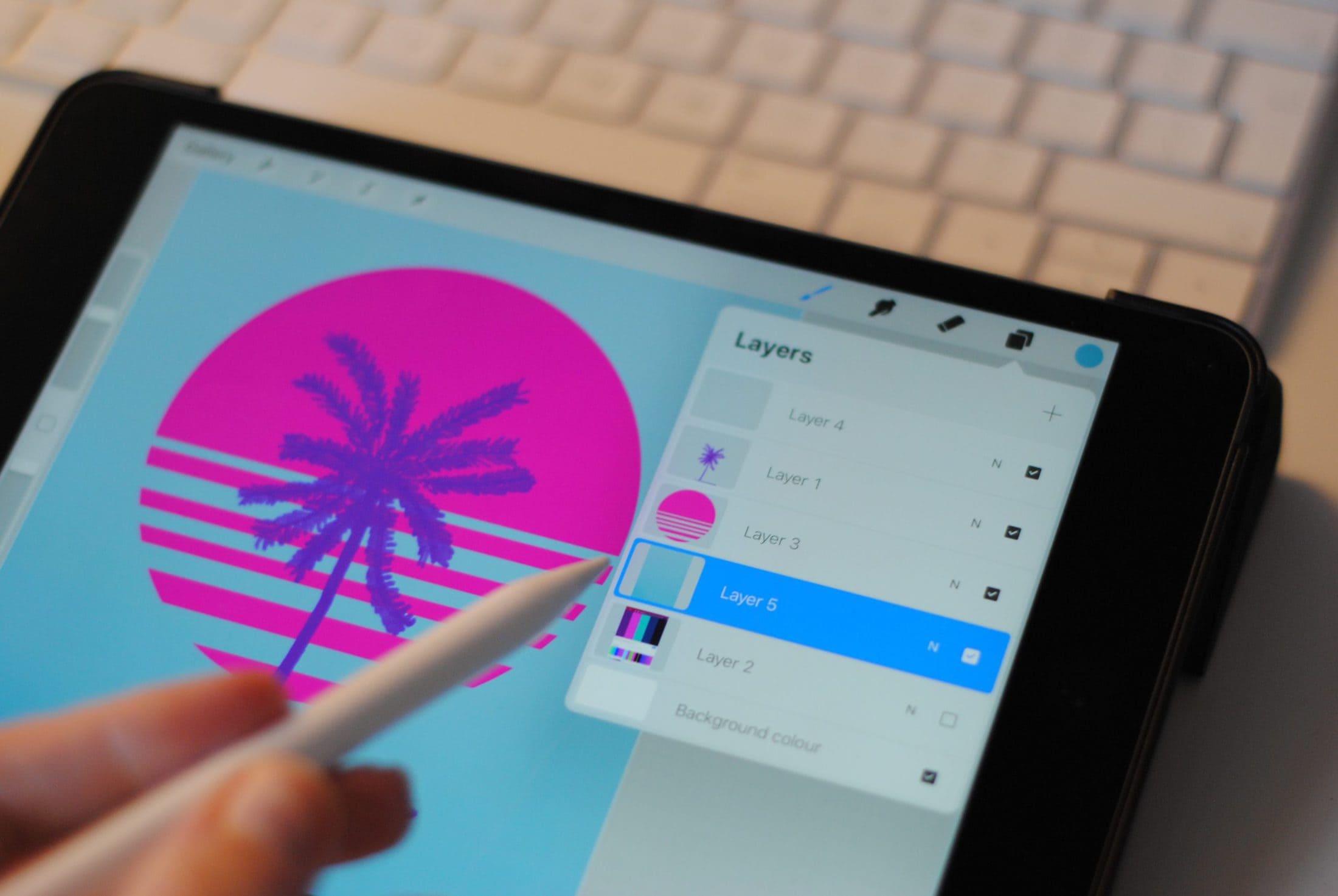While many people believe in the idea that consumers only want to experience a refined final product, the reality is that they often wish to understand the creative process behind the concept. In a world of continuous creation, the journey is as important as the destination. Consumers follow and are inspired by artists that can express their thoughts and feelings about their work. That connection is at the very core of every artist-fan relationship. Most creative people that make a career out of their pursuits do so by keeping fans involved and close. By doing that, they inspire others to try new things and challenge their comfort zone.

Your creative process is worth documenting it. That way, you’ll become more accountable with your time and at the end of it- it should not be a secret. To do that, you have to go through a series of steps. Creative processes vary depending on the type of work, but there are common elements in every cycle. In general, you should follow the next steps:
- Identify the created work’s purpose. Is it going to persuade, or tell a story? If so, what and to whom that would be?
- Investigate and explore. Every creative work is influenced by the creator’s life experience, education, knowledge, and world view. Think about the improvements and changes you want to see and experience around you.
- Ideate: This step will help you to uncover new aspects of the theme. Write or sketch out concepts and ideas. Evaluate and work on the idea while testing every step along the way. Create variations that will improve the final result, or that will offer a new view of the primary concept. Then publish and launch.
- Evaluate – discuss how well did the design went, what are its strengths, and points of improvement. Make a retrospective of the process, so you know what works and does not work for the next project.

Benefits of sharing your process
Continuous learning
Believe it or not, sharing how you were able to achieve something leads you to learn more about your work than you hoped for. Let’s say that you were sharing the process of how you designed a page for an online casino website. You had to consider the amount of content, colour and the placement of fields so that it looks and feels intuitive. However, another designer might be out there, going through your work and thinking about the same or even better way to achieve the goal using different steps and methods. Then, he shares his process and lets you know you can improve the work. The more you teach positive ideas, the better you learn them yourself.

Community Trust
The greater competition and availability of many online platforms, the harder it is to gain trust and sympathy. One of the few ways to gain confidence from the online community is by putting quality, authentic content that tells a story. When people or other artists visit your profile, it’s because they want to be inspired by your work. If you don’t sincerely expose the process of how you created the outcome, you won’t get a constructive critic. The chances that your work will be forgotten pretty soon are very high.

More clients
Many designers complain about not being able to get or retain clients. Think for a moment how many artists, designers and writers are out there, doing fantastic work and promoting themselves on online platforms and social media. This leads to the conclusion that just showing your final product is not enough. Even if they do like the final project, they will search for people that know how to communicate, negotiate and think out loud. Showing your creative work does the trick, and it tells a potential client that you’re a thorough and multi-layered artist that is interested in the idea.

By showing your work and spreading your idea, you become aware of how they spark many other concepts. You become aware that inspiration is something you meet once you start working on something. As you continue to develop yourself as a creative problem solver, you’ll gain a lot of experience, collect resources, thoughts, and doodles that you can rely on.





